As the last days for primary elections draw close on Tuesday, March 19, the students of COD Votes are busy at work increasing voter engagement efforts. This year’s presidential election will be the first for many young adults who are newly eligible to vote, with about 8 million new voters since 2022.
Youth voter engagement fluctuated through the past few elections, peaking in the 2022 election where a remarkable 50% of eligible young voters, ages 18 to 29, cast their ballot. This slightly dropped during the 2022 midterm elections but is expected to be high in the upcoming presidential elections, according to the Center for Information and Research on Civic Learning and Engagement.
Addressing young voters is important to members of the student-led organization COD Votes. They promote nonpartisan civic learning and engagement with the democratic process, such as voter registration drives, classroom presentations about National Voter Registration Day and Super Tuesday, and tabling with the League of Women Voters.
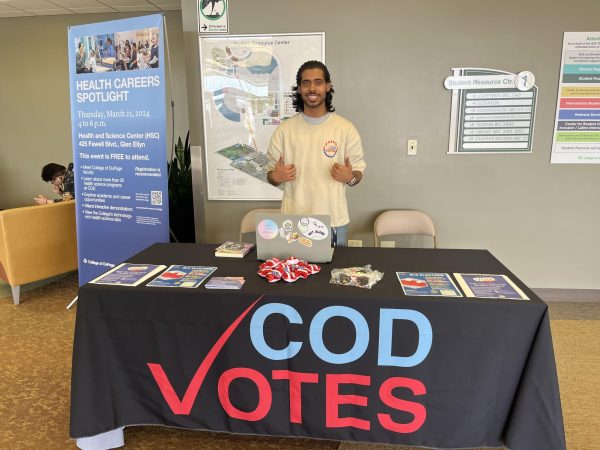
Shahid Khatib is a sophomore student and officer of COD Votes. He described how they plan their initiatives and his personal motivation for why he finds COD Votes’ work important.
“There are a few reasons that come to mind, first being the accessibility of voter education to the general public,” Khatib said. “There have been strides to make voters more informed of what’s going on in the political sphere, like voter guides, but I think we still have a long way to go. To me, and the other officers as well, carrying out the civic work has been an excellent way to practice my communication skills and get better at advocating on issues, including ones that aren’t civic related.”
One project Khatib and his fellow officers have planned is the Parade to the Polls, scheduled for Tuesday, March 19, from 11 a.m. to 2 p.m. Participants will meet in the COD cafeteria before they walk about 10 minutes south on Prairie Drive to the People’s Community Church, which is a polling site.
COD Votes member Angel Hernandez explained how the Parade to the Polls is a way to encourage political engagement.
“Voting can sometimes feel like a solitary or boring task, but we’re here to change that. We’re turning it into a fun, social and engaging experience,” Hernandez encouraged. “Bring a friend or come by yourself. It’s all about celebrating democracy and exercising your right to vote in a way that’s visible and meaningful.”
Through creative community-building events like this, COD Votes hopes to build more voter engagement, especially in local civic issues and state elections, as Khatib described.
“As much as it’s important to be informed of what’s happening at the federal level with the upcoming presidential election, I would say being involved in your community is just as important, if not more,” Khatib said. “Advocating for what’s happening in your town, or even campus COD student elections, is great because you’re able to make change much closer to home and see the effect in play much sooner than at the federal level.”
With this consideration, COD Votes members still plan to encourage engagement with the presidential election, and they are currently working on a voter guide to be released before the November elections.
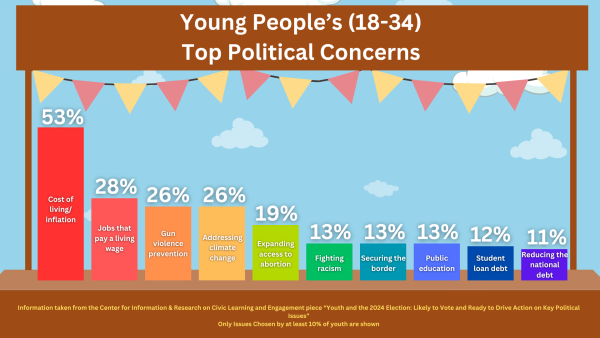
Concentrating on youth voter patterns is a focus area for many campaigners and political organizations. The Pre-2024 Youth Election Survey conducted last November surveyed 2,017 voters aged 18 to 34. It is from Tufts University, a private university in Massachusetts, and was facilitated by the college’s nonpartisan research organization, the Center for Information and Research on Civic Learning and Engagement.
In the CIRCLE report, 56% percent said they’re “extremely likely” to vote and the two most important topics to them were inflation (53%) and livable wages (28%). This matches a February 2024 survey done by Generation Lab and Axios that polled 1,073 young adults, in which 42% said they are guaranteed to vote and 39% said the economy is the most important issue to them.
Despite a high willingness to vote, 31% of CIRCLE respondents stated they were uncommitted to any presidential candidate. CIRCLE explained this means youth who are enthusiastic to vote may be hesitant because they do not feel any candidate or political party meets their needs.
Some voters have even organized to strategically mark the uncommitted option in the primaries to show dissatisfaction with the candidates and current federal policies, especially to support a cease-fire in Palestine and an end to U.S. military funding to Israel. This was galvanized by 100,000 uncommitted votes by voters in the Listen to Michigan movement led by millennial and Gen Z people, in their Feb. 27 primary. Michigan has the highest voter turnout from the states that have conducted 2024 primaries so far. In 2022, Michigan also had the highest youth voter turnout at 36.5%.
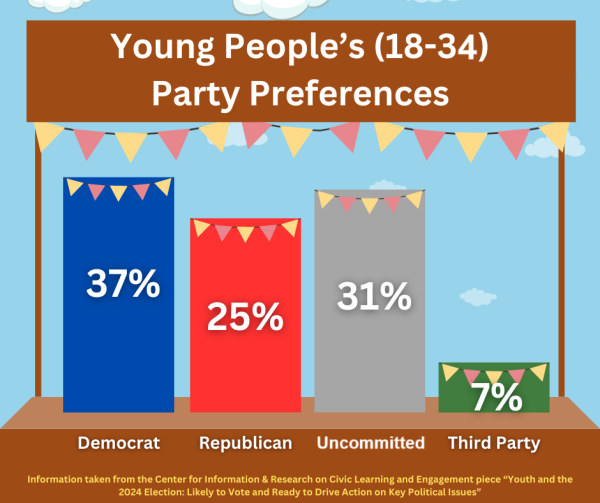
As Khatib engages with COD students to encourage voter registration and does educational presentations about the upcoming election, he said voters feeling trust in their candidates is a major factor in encouraging civic involvement and voting.
“A lot of voters may also be discouraged because of the feeling that their vote doesn’t matter,” Khatib stated. “Either because the candidate they’re rooting for doesn’t have the support to be seated or because they can’t identify with any of the candidates in general, or maybe even because the candidate they voted for didn’t listen to their concerns once they were elected. I believe this falls under the responsibility of the candidates running and the elected officials in office today.”
Khatib also mentioned the need for voter education. This reflects CIRCLE’s finding that only 1 in 5 young people have heard about political issues from political parties or campaigns.
The need for voter education is witnessed by the COD Votes students as they conduct outreach events. Khatib said candidates should educate their voters and directly respond to important issues voters advocate for.
“As someone who currently feels our elected officials can do more, breaking down the barrier between a citizen and an elected official is important,” Khatib said. “I think much of our voting bracket is alienated because of the politician stereotype, that someone who is supposed to advocate on our behalf instead has their own personal agenda. If the people we elected could find a way to connect with their voters and be more transparent, it could help sway individuals who are currently apathetic to their civic duty.”
Khatib said voter confidence in the election process and political institutions must be reinforced by candidates, not just through words, but action.
“Voters have clearly expressed concerns and rightfully so, but now it’s up to the federal government to clearly communicate to citizens how our elections are kept secure and to continue to take input and improve the system in place right now,” Khatib said.
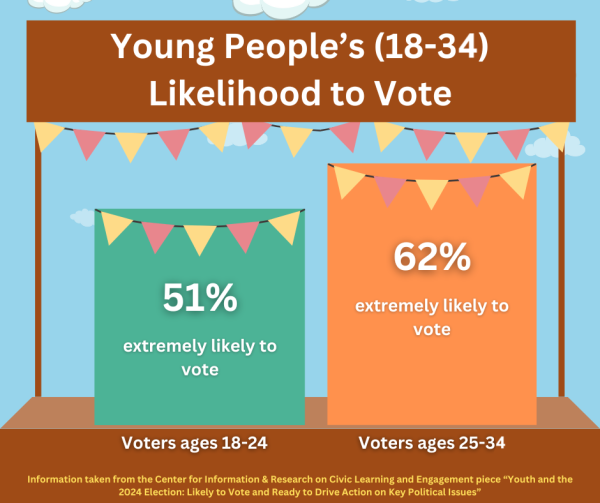
Khatib mentioned instances of political reforms, such as the implementation of ranked choice voting in some states and municipalities across the United States. He also emphasized programs COD Votes partakes in, such as the College Poll Worker Project. It is currently recruiting students from various colleges, including COD. It offers a role in monitoring election voters on the Nov. 5 presidential Election Day. Students can earn up to $120 for training in three sessions over the summer, $100 on Election Day, and another $250 provided by DuPage County.
“Even if students aren’t majoring in political fields, this program allowed them to uphold democratic principles and practice civic engagement,” Hernandez said. “It also ensures that the election process is fair, accessible and transparent with proper training.”
Students who are not eligible for the Poll Worker Project through COD can still apply to be election workers through the county programs. More information about campus voter events and the upcoming elections can be found on the COD Votes webpage.

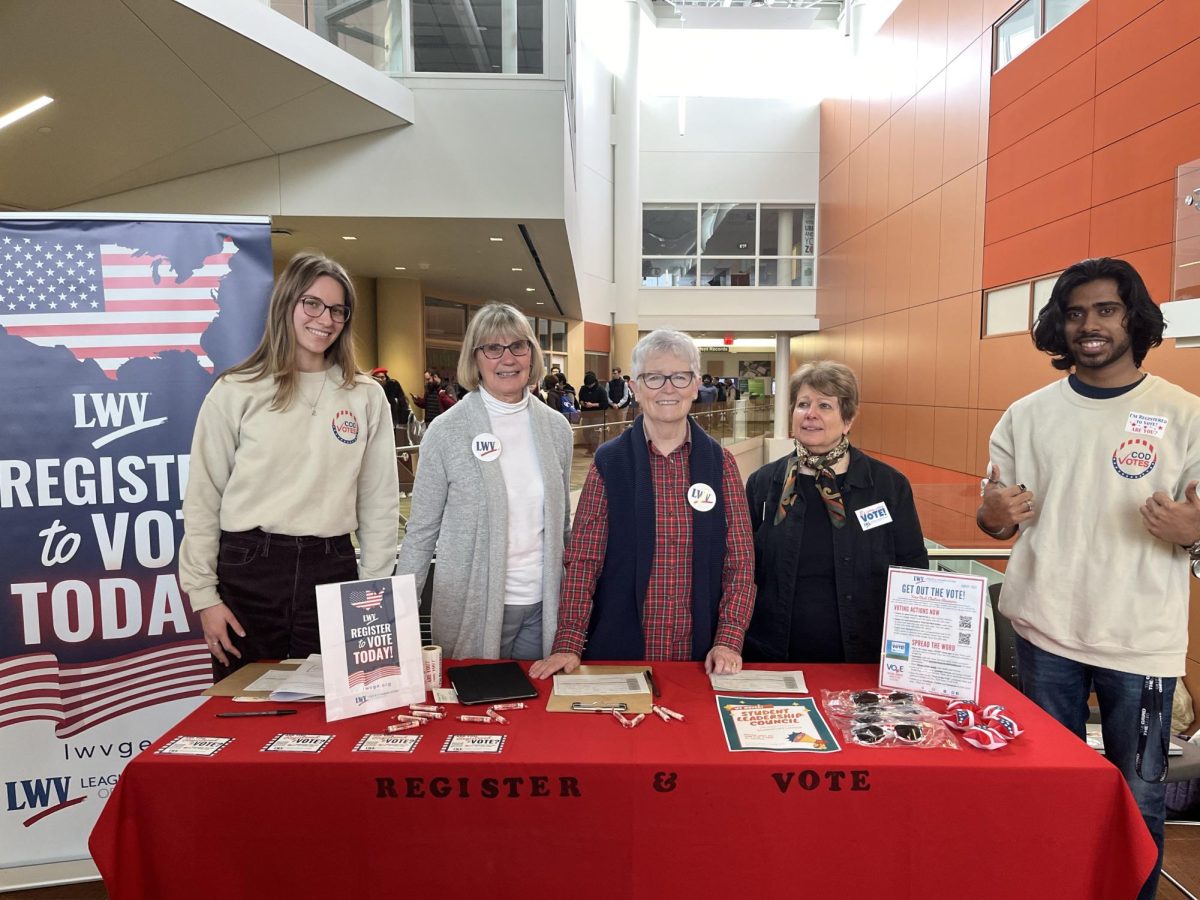



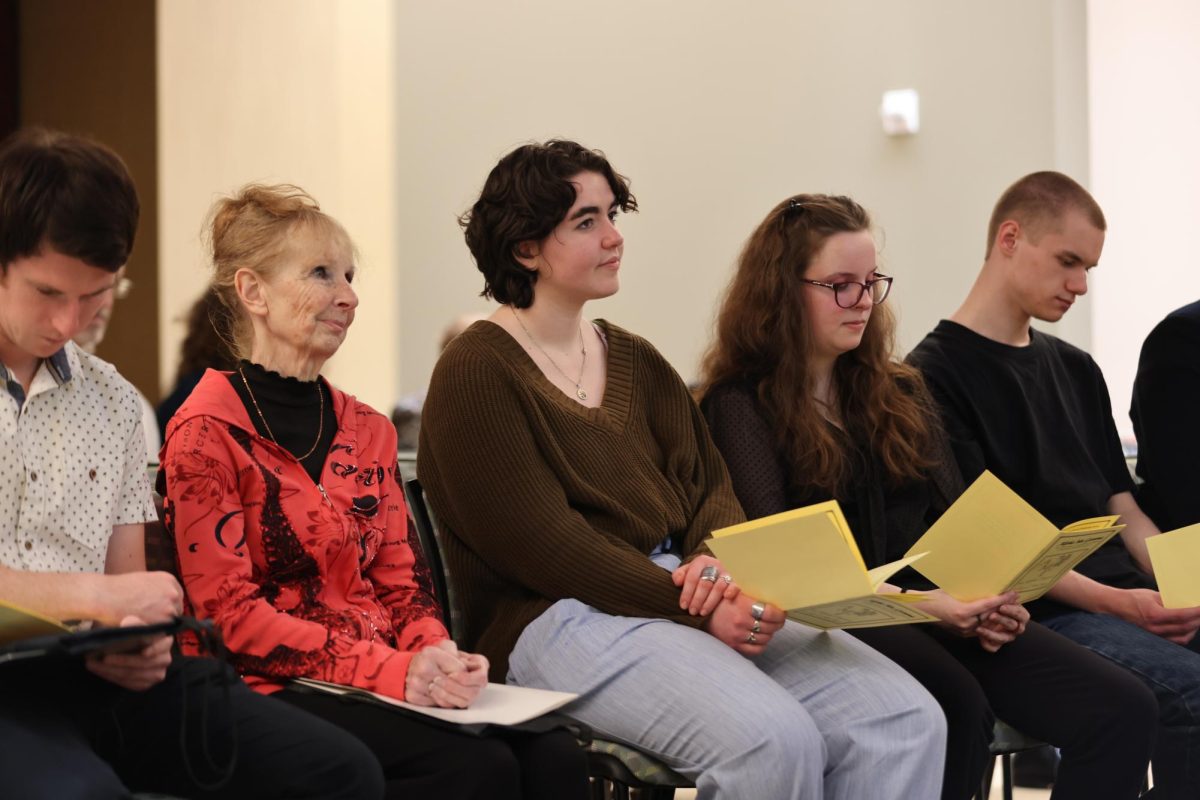
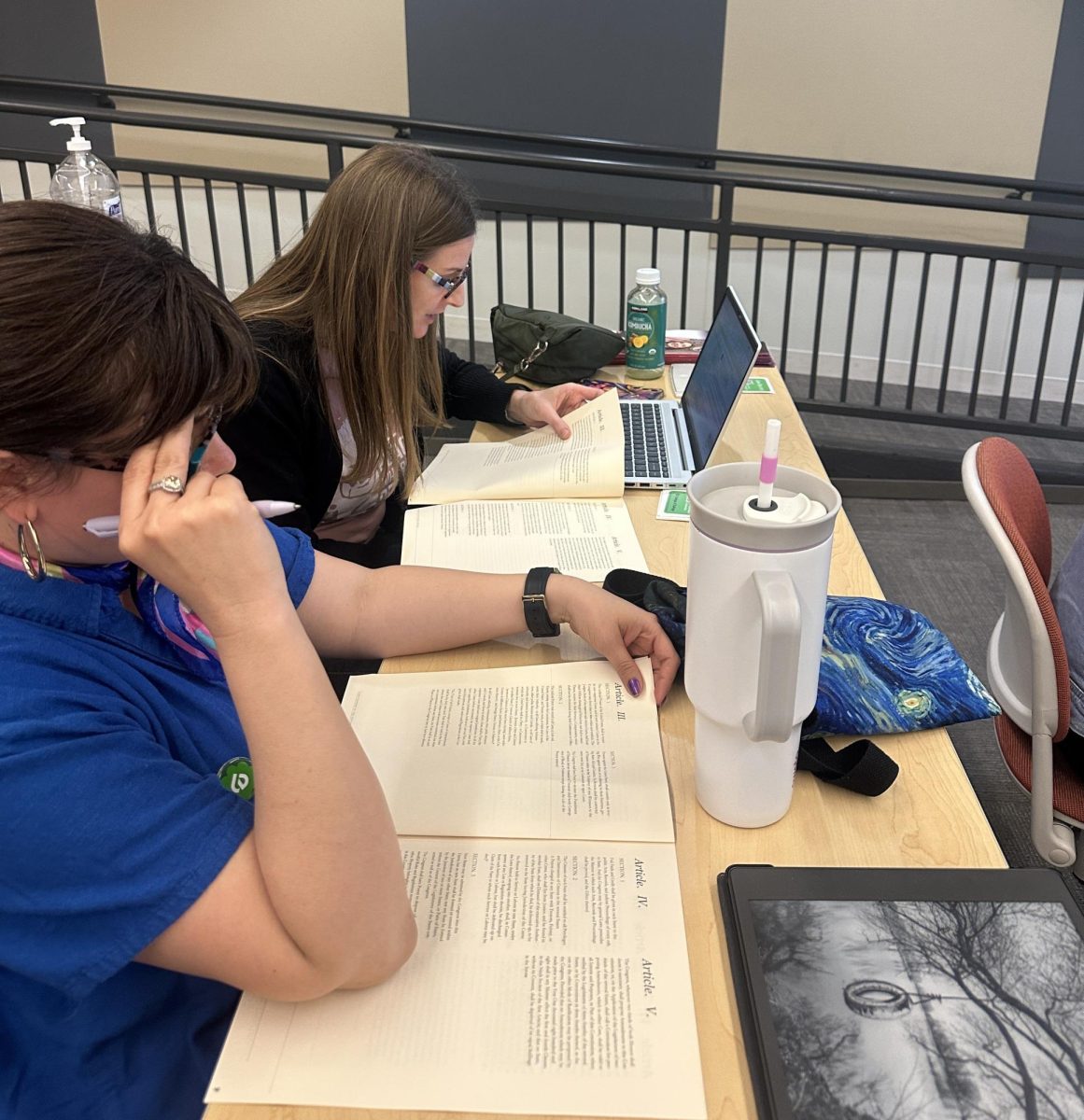

Khadijah • Mar 25, 2024 at 6:50 pm
we love to see it ✊🏽